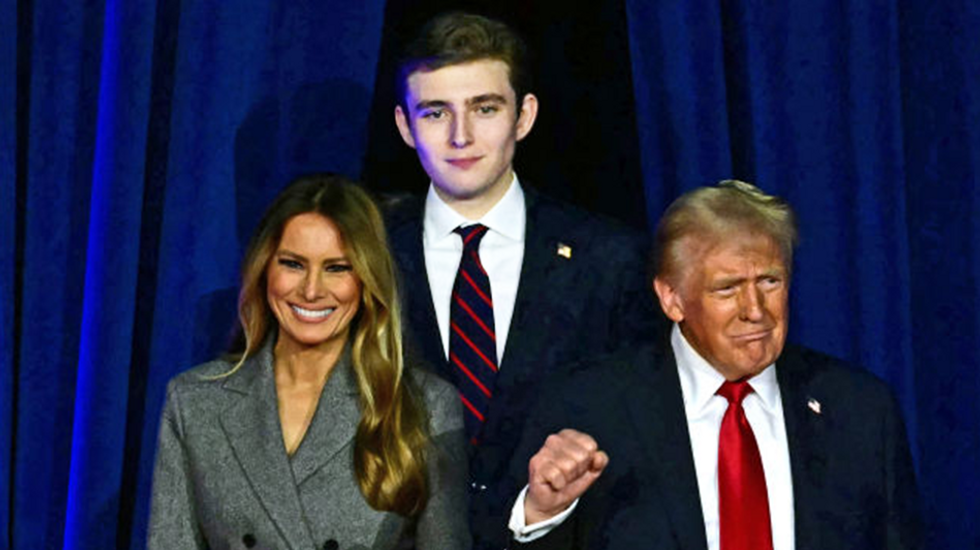Feds told to leave health care to doctors and their patients
'Patients deserve a system that encourages competition, allows for innovation'



There are sundry problems with our healthcare system, and, unfortunately, many of our most significant challenges originate with government policies and public health recommendations – well-meaning intentions seldom have the outcome that was designed.
Too frequently, critics argue, government policies pick winners and losers vis-à-vis health care. Such policy decisions are often settled deep within government bureaucracies at the National Institutes of Health (NIH), Health and Human Services (HHS), and Centers for Disease Control and Prevention (CDC).
Health care advocates need to stay focused on the health policy decisions impacting the relationship between physicians and patients; on vaccine protocols; and myriad other rulings which have direct consequence on access to care. Patient organizations and the health policy community can help government agencies call ‘balls and strikes’ in a fair, pro-science approach.
Later this month the CDC’s Advisory Committee on Immunization Practices (ACIP) is likely to vote on new recommendations relating to pneumococcal vaccinations. Specifically, ACIP is expected to endorse a recommendation to lower the age for routine pneumococcal vaccination from age 65 to 50. Such a policy change will save lives by expanding access to immunizations. Greater access to life-affirming care is a policy move that must be lauded from all quarters of the health care debate.
Greater access, though, is only half of what patients need when it comes to their medicine – greater access must be linked with more choice. Who should decide what medicine is best for a patient? The answer is simple and grounded in good science: patients with their doctors. So, with its decision to back the new recommendation to lower the age for pneumococcal vaccination to 50 and older, ACIP must not pick a ‘winner’ or a ‘loser’ regarding FDA approved vaccines in this health space.
There are two primary FDA-approved vaccines for pneumococcal disease. Health advocates and policy experts are not pushing one over the other, and neither should ACIP. Both vaccines should be included in ACIP’s recommendation to physicians.
It makes no good health-sense for these decisions – the right medicine for the right patient at the right time – to happen anywhere outside of the exam room. ACIP is comprised of the very best minds on vaccine practices, which is why they are serving in Atlanta at the CDC. However, gifted physicians and professionals in Atlanta should not be making intimate health decisions for patients in rural North Carolina or the Southside of Chicago. Modern medicine demands greater access (lowering the recommended age) and more choice (recommending both FDA-approved vaccines).
Given the post-COVID distrust many patients hold toward public health experts, ACIP (an agency unaccountable to the public) must not exclude innovations that could save lives. We know vaccines save lives; why limit recommendations on what vaccine a doctor should prescribe? Decisions made at the CDC impact Medicare and private insurance coverage so limiting patients to only one vaccine could impact compliance. ACIP’s recommendation will affect patients – positively or negatively – from coast to coast.
Recommending one vaccine raises several concerns:
- The patient-physician relationship is breached
- Lack of insurance coverage, higher out-of-pocket costs, and non-compliance
- Sufficient supply
- Lack of competition (we know drug costs come down as competition increases)
Greater access and more choice make for good vaccine policy. Patients deserve a healthcare system that encourages competition, allows for innovation, and promotes the doctor-patient relationship. What’s more, ACIP’s decision on pneumococcal vaccinations could help reset the public’s attitude toward the public health community.
Charles Sauer (@CharlesSauer) is president of the Market Institute and author of “Profit Motive: What Drives the Things We Do.” He has previously worked on Capitol Hill, for a governor, and for an academic think tank.
SUPPORT TRUTHFUL JOURNALISM. MAKE A DONATION TO THE NONPROFIT WND NEWS CENTER. THANK YOU!
What's Your Reaction?

































































































